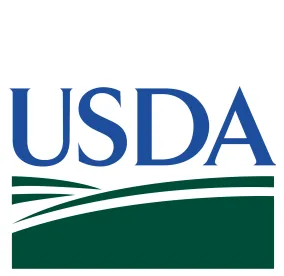The Animal and Plant Health Inspection Service (APHIS) within the U.S. Department of Agriculture (USDA) has published final amendments to its biotechnology regulations codified at 7 C.F.R. part 340 under the Plant Protection Act. 85 Fed. Reg. 29790 (May 18, 2020). The SECURE Rule (Sustainable, Ecological, Consistent, Uniform, Responsible, Efficient) marks the first comprehensive reform of these regulations since 1987 and follows a series of unsuccessful attempts to update the requirements that apply to genetically engineered (GE) organisms posing plant pest risks. Overall, the SECURE Rule leverages APHIS’s decades of experience with GE plant traits and products to focus its regulation on GE plants that pose an increased plant pest risk relative to their non-GE comparators, in lieu of default regulation of any article resulting from a genetic engineering process that may involve a plant pest organism. All currently nonregulated or permitted articles should retain their status under the new SECURE Rule.
Key changes made by the SECURE Rule include:
-
Replaces the “Regulate First, Analyze Later” Approach. Consistent with the 2018 proposed rule, the final SECURE rule expands opportunities for “self-determination” by developers that a plant is outside the scope of part 340. Previously, APHIS presumed regulatory oversight of virtually all new GE organisms if the donor organism, recipient organism, or vector was considered a plant pest, unless a developer successfully petitioned for deregulation. Under the SECURE Rule, developers may self-determine that their GE plants fall within one of several exemptions, including (1) genetic modifications where the change to the plant is solely a genetic deletion of any size, (2) genetic modifications involving a single base pair substitutions, (3) genetic modifications that are solely introductions of genes known to occur in the plant’s gene pool, or (4) additional modifications proposed by APHIS based on what could be achieved through conventional breeding. Significantly, plant-trait mechanisms previously determined by APHIS not to pose a plant pest risk under the prior rules, or subsequently under the new rules, are exempt—though demonstrating similarity to other developers’ successfully exempted products could engender data rights issues. The SECURE Rule also includes other specific exemptions, and continues to exempt EPA-registered or exempted pesticide products and certain microbial pesticides. Non-plant GE organisms that are plant pests or biocontrol microorganisms do not qualify for the SECURE Rule’s exemptions from regulation. The agency retains its enforcement discretion for incorrect self-determinations of nonregulated status.
-
Establishes Voluntary APHIS Confirmation of Exemptions. Developers can voluntarily seek confirmation from APHIS as to whether a plant product is subject to the SECURE Rule, particularly where helpful for developers to obtain access to international markets. This process codifies and replaces the current “Am I Regulated” submissions. APHIS now must respond with a “confirmation letter” typically within 120 days and post the response on its public website with any redactions needed to protect confidential information.
-
Creates Regulatory Status Review (RSR). The SECURE Rule creates a new process for developers to determine if a GE plant poses a plant pest risk and is therefore subject to regulation under part 340. The rule replaces the nonregulated status petition process and reviews whether a plant requires oversight based on the characteristics of the plant itself, not on the method by which the plant was genetically engineered. RSR is a two-step process, first assessing whether there is a “plausible pathway” to increased plant pest risk. If so, the developer may seek a permit or request that the Agency complete the second RSR step, in which APHIS evaluates the likelihood and significance of the risk. If after publication and public comment on the findings APHIS finds the GE plant is unlikely to pose an increased risk relative to its comparator (typically, the non-GE plant from which the GE plant is derived), the GE plant is not subject to part 340. Subsequent transformation events using the same plant-trait-mechanism of action combination as plants found not to be a plant pest risk under RSR also are exempt. If a plant pest risk remains, the article may be moved or released only via a permit. Non-plant GE organisms do not qualify for the RSR process and require a permit if they may pose a plant pest risk within the scope of amended 7 C.F.R. 340.2.
-
Revises Permits and Removal of the Notification Process. A permit is required for importation, interstate movement, or environmental release of any plant or organism developed using genetic engineering that does not qualify for an exemption or poses a plausible plant pest risk, as determined via RSR. APHIS retains authority to impose standard and special permit conditions, as well as to withdraw or amend issued permits in certain circumstances. Previously, part 340 provided for a streamlined notification process for certain plants as an alternative to a permit. The SECURE Rule does confine the typical timeframes for the Agency’s review of permit applications.
-
Clarifies Scope of Part 330. The final SECURE Rule amends 7 C.F.R. 330.200 to clarify that GE plant pests and GE biological control agents are not subject to duplicative regulation under part 330. Previously there was confusion as to whether the Plant Protection and Quarantine (PPQ) program (implementing part 330) also had jurisdiction along with the Biotechnology Regulatory Service (BRS) (managing part 340).
The SECURE rule is effective May 18, 2020, but the rule sets out a phased implementation of its provision. Key dates include:
-
June 1, 2020: APHIS no longer accepts “Am I Regulated” requests.
-
August 17, 2020: The new confirmation letter process for confirming self-determinations takes effect. With the exception of the permitting and RSR process, all aspects of the SECURE Rule are implemented.
-
April 5, 2021: The notification process is discontinued. RSR is implemented for certain crops, including corn, soybean, cotton, potato, tomato, and alfalfa.
-
October 1, 2021: RSR in effect for all crops. No new deregulation petitions accepted.
As this is the first major regulatory change to the biotechnology space in decades, developers of GE plants and regulated non-plant organisms should ensure they fully understand the changes in the SECURE Rule. These regulatory changes also may attract litigation challenges from anti-GE groups that actively participated in the public comment opportunities associated with multiple iterations of these regulatory amendments.






 />i
/>i
